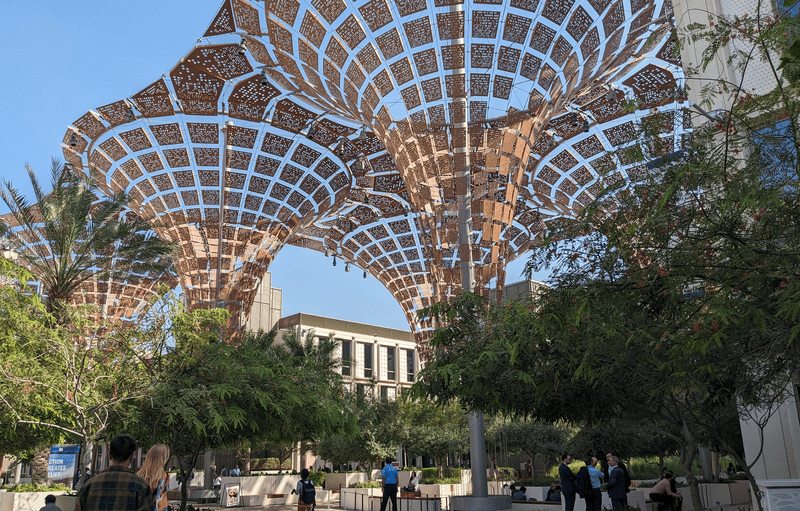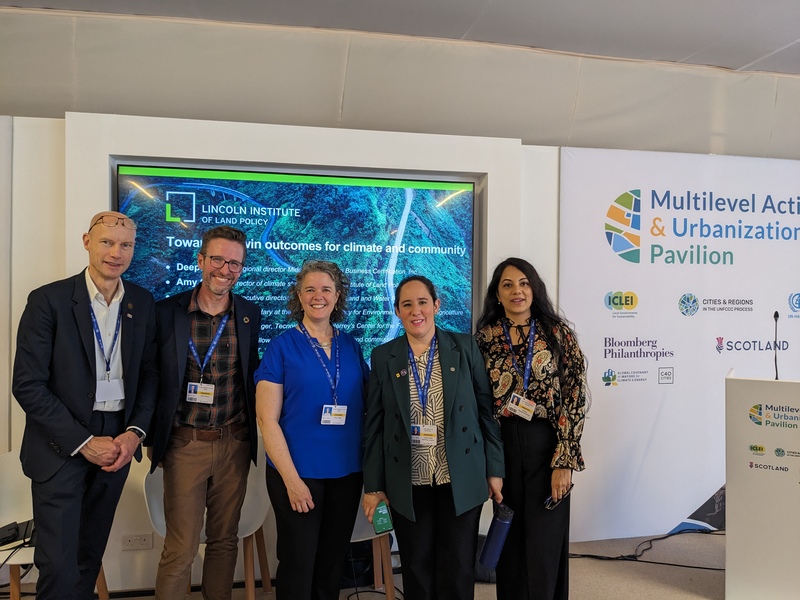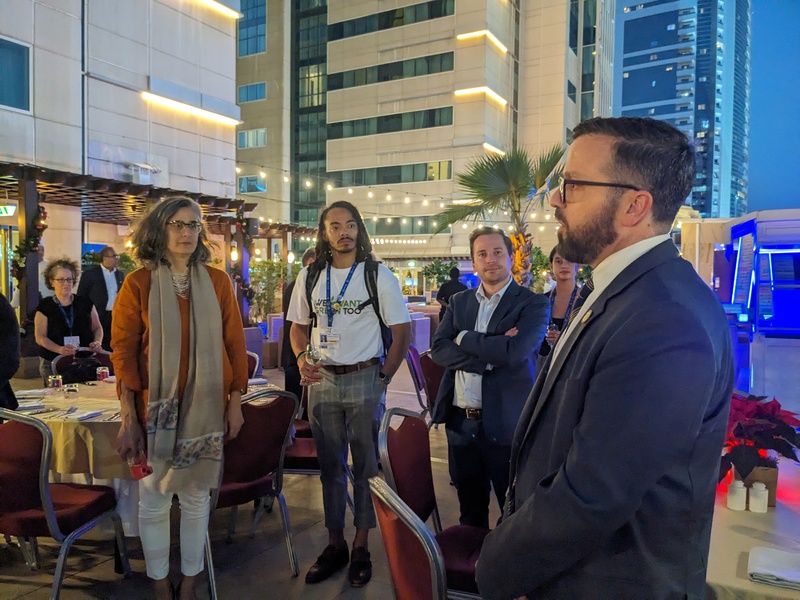Land Matters Podcast: COP28 and the Future of the Planet

Some 150 heads of state, 195 countries, and a total of 85,000 participants engaged in the COP28 global climate summit in Dubai in December, which concluded with an appeal to triple renewable energy capacity and combat methane emissions, a goal to halt deforestation by 2030, an outline for a loss and damage fund, and the launch of a global stocktake to keep track of how nations are doing reducing carbon emissions.
Most of the headlines referred to a call at the close of COP28 for all nations to be focused on “transitioning away from fossil fuels in energy systems, in a just, orderly, and equitable manner.” Many had hoped for stronger language calling for the phasing out of oil and gas on a stricter timetable – and of course there was the fact that the summit itself was hosted by a region whose economy is fundamentally based on extracting and exporting fossil fuels. But it was the first time a COP declaration has specifically identified fossil fuels.
All of that could be fairly characterized as progress in the face of a planetary emergency. Still, 2023 was the hottest year on record, and current emissions are on track for a world that is 2.5 degrees warmer, well above the 1.5 degree Celsius goal set in the Paris Accords – the major international agreement to come out of the COP21 summit in 2015. Missing that target has contributed to more skepticism about COP, and the pledges and non-binding declarations that have followed, including some dashed hopes after COP26 in Glasgow two years ago.
Are these big summits what the world should be looking to? Are they designed to accomplish anything more than to keep the parties talking, taking stock, and keeping score on commitments? To break down the proceedings – and to consider progress that was made on other fronts, including land use and urban issues – this episode of the Land Matters podcast is devoted to a roundtable discussion with four Lincoln Institute staff members who were in Dubai: Amy Cotter and Patrick Welch from the climate strategies team, Anaclaudia Rossbach, who runs the Latin America program, and John Farner, the director of the Babbitt Center for Land and Water Policy.

“I gain a lot of encouragement from the prevailing understanding that these are systems and we can't seek a single silver-bullet solution—we must embrace a multiplicity of solutions across different levels of government,” says Cotter. “But there's both no time to waste and no single solution. The recognition of that, I hope, will break through analysis paralysis and finger-pointing.”
The next Conference of the Parties summit, COP29, will be hosted in December of this year in Azerbaijan, another petroleum state.

You can listen to the show and subscribe to Land Matters on Apple Podcasts, Google Podcasts, Spotify, Stitcher, or wherever you listen to podcasts.
Further Reading
Low-Carbon, Climate-Resilient Communities and Regions (Lincoln Institute)
From COP28 to green cities: A call to action (Public Square)
Top Findings from the IPCC Climate Change Report 2023 (World Resources Institute)
Harvard delegates reflect on COP28 (The Salata Institute for Climate and Sustainability)
Bill McKibben on COP28, Maintaining Hope, and Walking in the Woods (Common Edge)
The World is Copping Out on Climate Change (Meer)
Local Solutions in Land: Multilevel Collaboration for Inclusive Climate Resilience (ICLEI Global)
Toward Win-Win Outcomes for Climate and Community (ICLEI Global)
Anthony Flint is a senior fellow at the Lincoln Institute of Land Policy, host of the Land Matters podcast, and a contributing editor of Land Lines.
Lead image: A sculpture at COP28 in Dubai, United Arab Emirates. Credit: Amy Cotter.